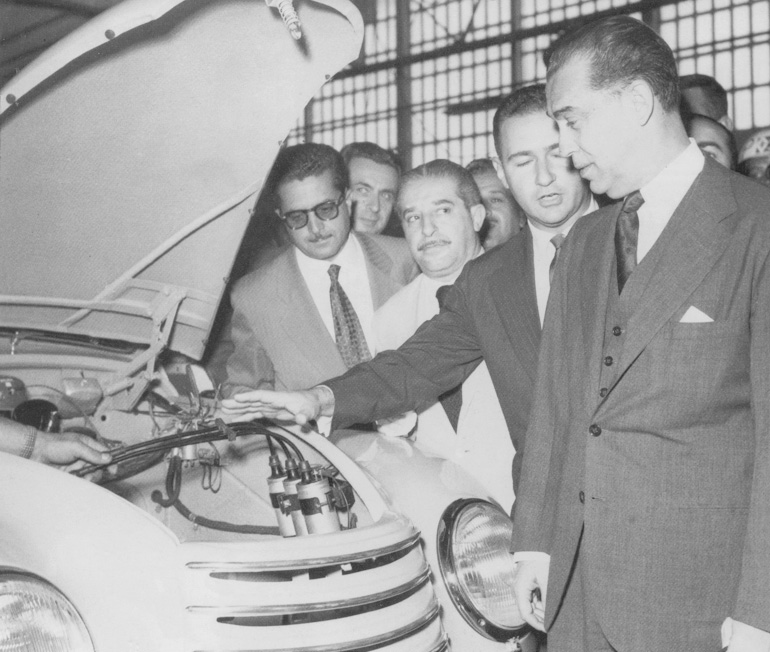
The reforms of Juscelino Kubitschek’s presidency focused on industrial developments, such as the construction of Brasília and the development of a national auto industry. From Revista Ultima Hora, courtesy of the Arquivo do Estado de São Paulo.
After the war and a return to democracy, Brazil found itself faced with myriad economic, social, and political problems. An escalating economic crisis and difficulties arising from coffee as a primary export forced much attention on to improving the country’s economy. A population explosion resulted in migration and regional disequilibria, and the poor favelas in Rio grew. Radio, having become popular during the Vargas regime, continued to captivate the nation and remained a primary way of connecting to the rest of the country and the world at large. Vargas’ brief return to politics, initially vastly successful but ending tragically with his suicide, marked the populace forever. Kubitschek, a subsequent president, attempted to bring Brazil into a new era by constructing Brasília, a capital city to capture the world’s imagination. Yet inflation continued to rise dramatically, and panic about a communist takeover caused the military to take a more active role in moderating the president’s power. A military coup in 1964 ushered in a new era in Brazil’s history.
